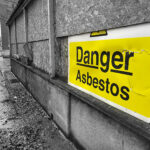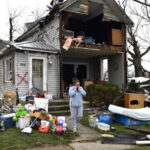Most of the debris is gone, and volunteer and police presence is light in Tennessee.
Now, a month after tornadoes ravaged portions of the state, residents are playing the waiting game – for federal aid to arrive, for insurance checks to come in the mail and for construction to begin.
Federal officials are also waiting on mobile homes to be cleared for use in Tennessee and Arkansas, though some residents are wary because of formaldehyde levels in the trailers.
The mobile homes are being tested after the Centers for Disease Control and Prevention reported last month that government-issued trailers may have exposed Gulf Coast hurricane victims to dangerous levels of formaldehyde fumes. Formaldehyde, a preservative commonly used in construction materials, can cause breathing problems and also is believed to cause cancer.
Federal Emergency Management Agency spokesman Jay Eaker said the agency has identified 61 people in Macon County, northeast of Nashville, and eight in other counties who are eligible for mobile homes, but it could take a month before the trailers are ready.
Doug Baldwin, who has been living in his home since the storms pushed a tree into it and tore through the roof, said he’s concerned about the safety of the FEMA mobile homes even though he isn’t eligible for one.
“I wouldn’t have one of them in my yard,” he said.
Eaker said the Tennessee Emergency Management Agency will decide whether it wants to accept the trailers.
“We will not bring a single mobile home that has not been approved by the state of Tennessee,” he said.
Baldwin is trying to figure out how to make up the difference between what his insurance will pay for the repairs to his home and the actual cost. FEMA declined his grant request because he has insurance.
“I can understand FEMA not helping us, but we can’t afford a loan,” he said. “If we go for a loan, that’s another bill and we can’t afford that.”
A construction crew is fixing the second floor, repairs he hope will be finished in a month. In the meantime, gaps in the walls are covered with plastic to keep out the wind. Moving wasn’t an option for him, but some of his neighbors were considering it.
Residents praised the quick work of emergency workers, local utilities and state and federal agencies in the days after the Feb. 5 tornadoes, which killed 32 people statewide. But now that activity has leveled off, some assistance centers have closed and people are turning their focus to the long-term recovery.
Macon County Mayor Shelvy Linville estimates that 90 percent of people who lost their homes will rebuild, though he hopes FEMA can move quickly with the mobile homes.
“They have been working with residents to get them temporary living arrangements, but that’s probably going to start wearing on people a little bit,” he said.
Most of the $2.5 million in approved FEMA aid has been dispersed to victims, though there’s still time to apply, Eaker said. The Small Business Administration has also approved $3.6 million in low-interest loans for homeowners, renters and businesses.
Across the road from a natural gas pumping plant that caught fire and exploded after a tornado touched down, a bright blue tarp on the roof of Linnie Gillihan’s doublewide trailer flaps wildly in the wind. Gillihan is still waiting for her insurance company to pay for the damage to her roof and the loss of other small buildings on her property.
“The insurance gives you so much money, but until you get the repairs done, how do you know if it is going to be enough?” she asked. “Here you just sit, waiting.”
Bobby Ward, a construction contractor who is helping some families rebuild, said many are still waiting, though some are moving quicker than others. Along one hard-hit road, land that was stripped bare of homes and trees shows one sign of progress: the frame of a new house.
“Help is there and you’ve got to be educated to find it,” he said. “You’ve got to be patient and make the calls and ask questions. We’ve got a lot of people here that still have a long way to go.”
Was this article valuable?
Here are more articles you may enjoy.

 BNSF Says It Didn’t Know About Asbestos That’s Killed Hundreds in Montana Town
BNSF Says It Didn’t Know About Asbestos That’s Killed Hundreds in Montana Town  Gallagher: Global Insured Natural Disaster Claims Again Dominated by Severe U.S. Storms
Gallagher: Global Insured Natural Disaster Claims Again Dominated by Severe U.S. Storms  Smartmatic, One America News Settle Election Defamation Lawsuit
Smartmatic, One America News Settle Election Defamation Lawsuit  Harvard Study Again Stirs the Pot on Demotech Ratings of Florida Carriers
Harvard Study Again Stirs the Pot on Demotech Ratings of Florida Carriers 